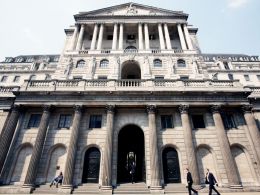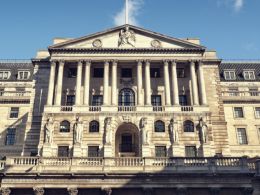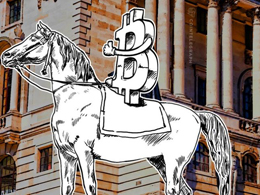
Bank of England: Digital Currencies are Similar to Commodities
The Bank of England (BoE) has published an article on the role of money in the modern economy and one topic was the future of digital currencies and payment technologies. The currency v commodity debate has been going on for a while and the Bank of England is clearly on the commodity side of the argument. "Digital currencies are not at present widely used as a medium of exchange. Instead, their popularity largely derives from their ability to serve as an asset class. As such they may have more conceptual similarities to commodities, such as gold, than money," the bank concluded. Not a....
Related News
Bank of England deputy governor for monetary policy Ben Broadbent argued in a speech today that bitcoin is unlikely to obtain widespread adoption – but that central bank-issued digital currencies could have a big impact on the global financial system. In a talk at the London School of Economics, Broadbent focused specifically on the evolving relationship between digital currencies and central banks, a topic that Bank of England staffers have broached in the past. The deputy governor dismissed the possibility that digital currencies such as bitcoin could become widely used as a payment....
The Bank of England has proposed the introduction of a central bank backed digital currency alongside fiat banknotes. The idea of creating a central bank backed digital currency is not a new thing. The digital currency community and central banks of various nations have floated this idea at one point or another. While most nations are yet to act upon it, the Bank of England is already doing the groundwork for such an implementation. A ‘Staff Working Paper‘ published this month as part of the research commissioned by the Bank of England reports that introduction of a Bank of England backed....
Bank of England to include blockchain interface supporting Bitcoin and other digital currencies in its revamped interbank payment system. The Bank of England is known for its progressive outlook. On multiple occasions, representatives of the English Central Bank have hinted the use of digital currency and blockchain technology in the near future. They may have been referring to the recently announced plan to revamp the country’s interbank payment system all this while. In an announcement, the Bank of England made its plans to upgrade its interbank fund transfer network by the end of this....
The Bank of England’s deputy governor for monetary policy, Ben Broadbent believes that the issuance of digital currency by central banks will put commercial banking’s business model and practices at risk. He also stated that digital currencies (bitcoin etc.) are unlikely to replace established fiat currencies. Bank of England (BoE) deputy governor Ben Broadbent has claimed that switching over to digital currencies or a digital version of the sterling pound will have a negative impact on banks. In his opinion, a digital version of sterling could “impair” commercial banks’ ability to make....
While the majority of the world governments and central banks ponder on what direction to take in regards to regulation of digital currencies like Bitcoin and whether it should be legal or not, the UK government and Bank of England is taking an extremely positive stance. In a pre-release article issued in the Q3 2014, the Bank of England stated that, They seem to be particularly intrigued by the Bitcoin Blockchain which they refer to as the distributed ledger and the key innovation. “Digital currencies do not currently pose a material risk to monetary or financial stability in the United....





